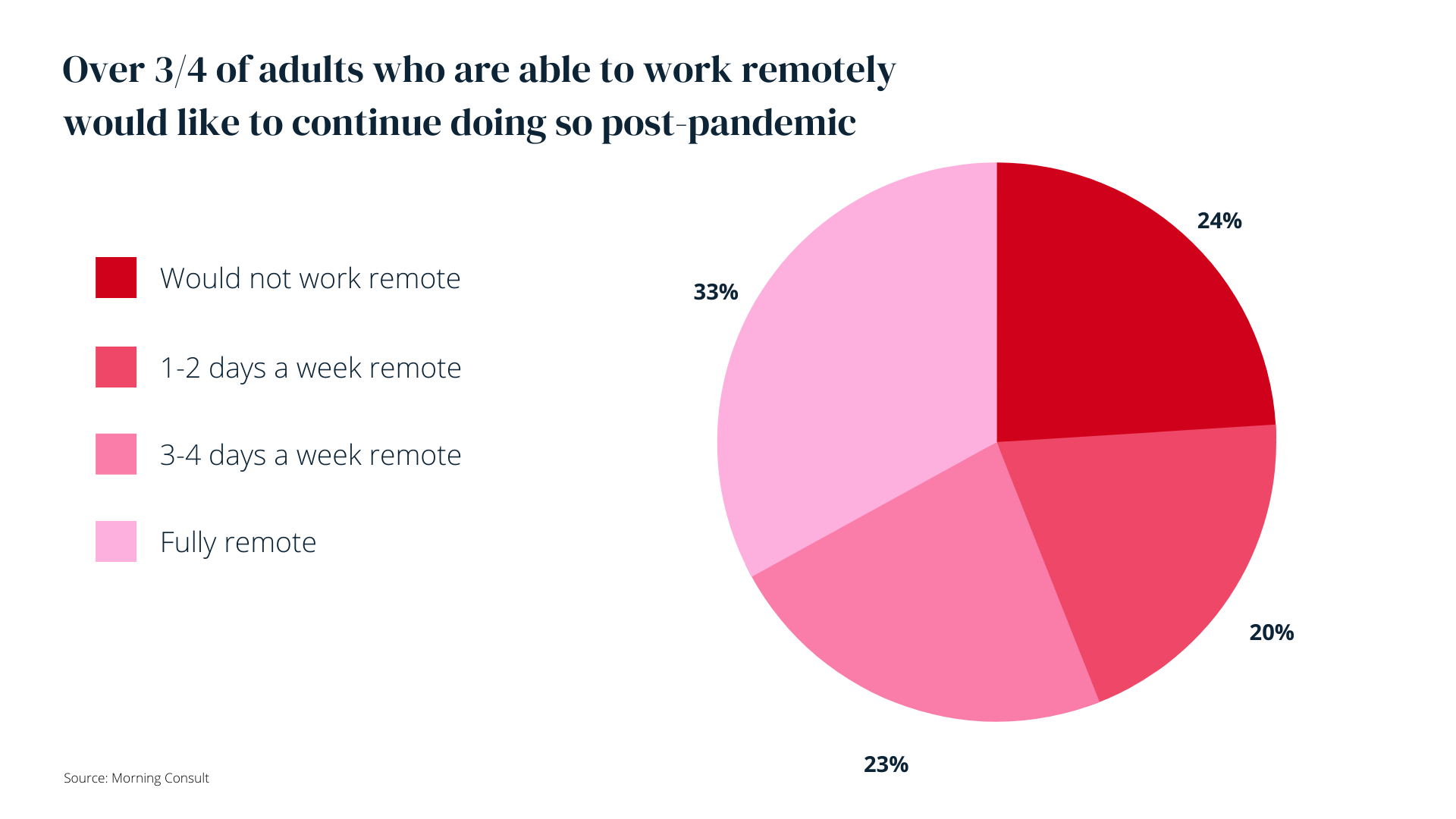The workforce is entirely different than it was just two years ago.
The global pandemic was a catalyst for the inevitable shift from a traditional work environment to one that’s highly flexible and mostly based at home.
While new variants of the coronavirus continue to keep folks on their toes, tech (and all other industries, too) are grappling with how to bring people back into the office.
The problem? People want to stay remote.

In occupations where work must be done on location, that’s not necessarily an option. Some industries and roles, though, are ripe for remote work, whether that’s in a hybrid model or a full work-from-home situation. Remote software engineer jobs are one such example.
Why are there so many remote software engineer jobs?
Before we talk about how many remote software engineer jobs are available, we have to talk about simply how many software engineering jobs in general are available. The answer is millions; and millions still go unfilled every single year.
As the world grows increasingly tech-focused, other industries are looking to build their own stacks, innovate web pages, create mobile apps, and bring their products or services into the tech age. Think retail companies making new shopping experiences; healthcare companies filing medical records electronically; government and defense contractors expanding their own tech acumen.
Because of the nature of software engineering, the job can often be performed remotely. Software engineers tend to work in teams, but tools like Zoom, Slack, and Microsoft Teams, among others, keep folks connected without the need for face-to-face interaction.
It’s the remote-friendly work environment (plus benefits and high earning potential) that keep the interest in tech growing year over year.
These companies (among many others) are or will remain remote after the pandemic
According to FlexJobs, more than 30 big-name companies in tech have converted to a fully remote or a hybrid flex-remote allowance for their employees and will continue to hire for remote software engineering jobs in the future:
Twitter.
One of the first major tech organizations to announce their remote-forever plans in the height of the pandemic, Twitter will allow employees to work remotely indefinitely. Those who wish to work from one of the company’s 32 offices can do so as they please.
Adobe.
Taking a flex approach, Adobe plans to let employees work from home 50% of the time and return to the office, when safe, the other 50%.
Slack.
FlexJobs states that most of Slack’s employees can work remotely permanently, though it doesn’t state which teams that doesn’t apply to. Their new hiring trend is centered around hiring remote employees, including ones not located near one of their 11 offices.
Facebook.
Facebook recently (June 2021) announced their flexibility expansion plans, which include permanent remote work for employees as well as opportunities for global travel days and working across borders.
Shopify.
Shopify has announced that all employees can work remotely permanently. They’re one of many companies who have recognized some — if not most or all — of the work their staff does can be done from home.
HubSpot.
According to FlexJobs, Employees at HubSpot can choose from three options: work from home with an approved home office setup




